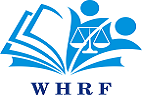BENIN
The rights to freedom of expression and peaceful assembly were unduly restricted; journalists and health workers were unjustly prosecuted, harassed and intimidated. The police used excessive force while policing demonstrations and enforcing public health restrictions. Discrimination against women and minorities persisted and LGBTI people suffered harassment and violence.
Background
Tensions between the government and opposition parties persisted following disputed parliamentary elections in 2019. The African Court on Human and Peoples’ Rights (African Court) requested that Benin suspend the May local elections, pending its decision on a case brought by political opponent, Sébastien Ajavon, concerning the exclusion of the Social Liberal Union Party from local elections. A few days later, the government barred individuals and NGOs from submitting direct complaints to the African Court, and the May elections went ahead.
In December, the African Court ordered Benin to take all measures to repeal the Amnesty Law for all the criminal offences relating to the 2019 legislative elections.
The government responded to the COVID-19 pandemic by implementing certain restrictions on human rights and releasing 411 prisoners.
Freedom of expression
The authorities continued to detain and prosecute journalists under certain provisions in the 2018 Digital Code that unduly restricted the right to freedom of expression.
On 3 January, Aristide Fassinou Hounkpevi, editor of the online L’Autre Figaro newspaper, was arrested by agents of the Central Office for the Repression of Cybercrime. He was charged with “harassment through electronic communication” in connection with comments he made on social media about the possible appointment of the Foreign Minister as ambassador to France. He was released on 9 January but his case was kept open for further investigation.
Ignace Sossou, a journalist, was released from Cotonou Prison in June, after the Cotonou Court of Appeal reduced his sentence to 12 months, including six months suspended for “harassment through electronic communication” after he posted on Twitter quoting the Public Prosecutor.
In July, the High Authority of Audiovisual Communication ordered unauthorized online media outlets to close. The decision was viewed by some in the media as a way to silence opposition media.
On 10 November, Loth Houénou, a political opponent, was sentenced to two years in prison and a fine of XOF200,000 (US$370) for “harassment through electronic communication”. He was arrested on 26 June after he published audios on social media criticizing the President and other institutions.
Freedom of assembly
Restrictions introduced to control the spread of COVID-19 were used to prevent political opponents from organizing meetings and rallies. However, demonstrations by government supporters went ahead without interference.
In August, the police prevented a meeting organized by Frédéric Aïvo, a political opponent, on the grounds that it was unauthorized.
Excessive use of force
In March, the police shot dead Théophile Dieudonné Djaho, a student, during a demonstration against the arrests of three National Student Federation members at the University of Abomey-Calavi. The Honorary Chairman of the NGO Voices of Students filed an appeal with the Constitutional Court against the President and the Minister of Interior and Public Security for human rights violations. The government announced an investigation.
In May, Antonin Lokossi was shot dead by a Forest Service guard in the town of Toffo in Atlantique department while he was gathering firewood. He was at the time accompanied by two members of his community, who said they were unarmed when guards fired at them.
Health workers’ rights
In March, health sector unions raised concerns with the authorities about their exclusion from initiatives to manage the impact of COVID-19 on the health and safety of their members. In July, they issued a public statement denouncing the lack of PPE and poor working conditions.
Police arrested a health worker on 8 June after he posted a warning on social media about a COVID-19 outbreak at Ouémé-Plateau Departmental Hospital Centre. He was charged with breaching confidentiality and sentenced to six months in prison, including five months suspended and a fine. He was released on 8 July.
On 8 July, Adolphe Houssou, a spokesperson for health sector unions, publicly criticized the government for not doing enough to protect health workers from COVID-19. On 25 July, he fled the country in fear of reprisals after police officers went to the Health Ministry asking for his address.
Discrimination
In March, the UN Committee on Economic, Social and Cultural Rights issued its concluding observations on Benin’s periodic review. It raised concerns about widespread attacks against people with albinism; killings of so-called “witch children”; and local customs which deprived women of their inheritance and property rights.
A government civil service recruitment competition excluded people with disabilities.
Gender-based violence
The widespread use of violence and sexual harassment against women and girls continued. In May, Angela Kpeidja, a journalist for a national television station, publicly denounced sexual harassment and other abuses in her workplace. The authorities suspended the station’s deputy editor-in-chief.
Rights of lesbian, gay, bisexual, transgender and intersex (LGBTI) people
In Cotonou in April, unknown assailants beat a transgender woman unconscious. She regained consciousness in Godomey police station, where officers beat, insulted and threatened her. They stripped her naked, photographed her and sent her home without her clothes after five days in detention.
In July, a transgender woman was attacked by a mob who stripped her and beat her as they chased her through the streets. Later that night, police arrested her at her home for no legitimate reason, took her to the Sodohomè police station in Zou department, photographed her face and genitals, and held her in a cell with male detainees. She was released without charge the next day.
